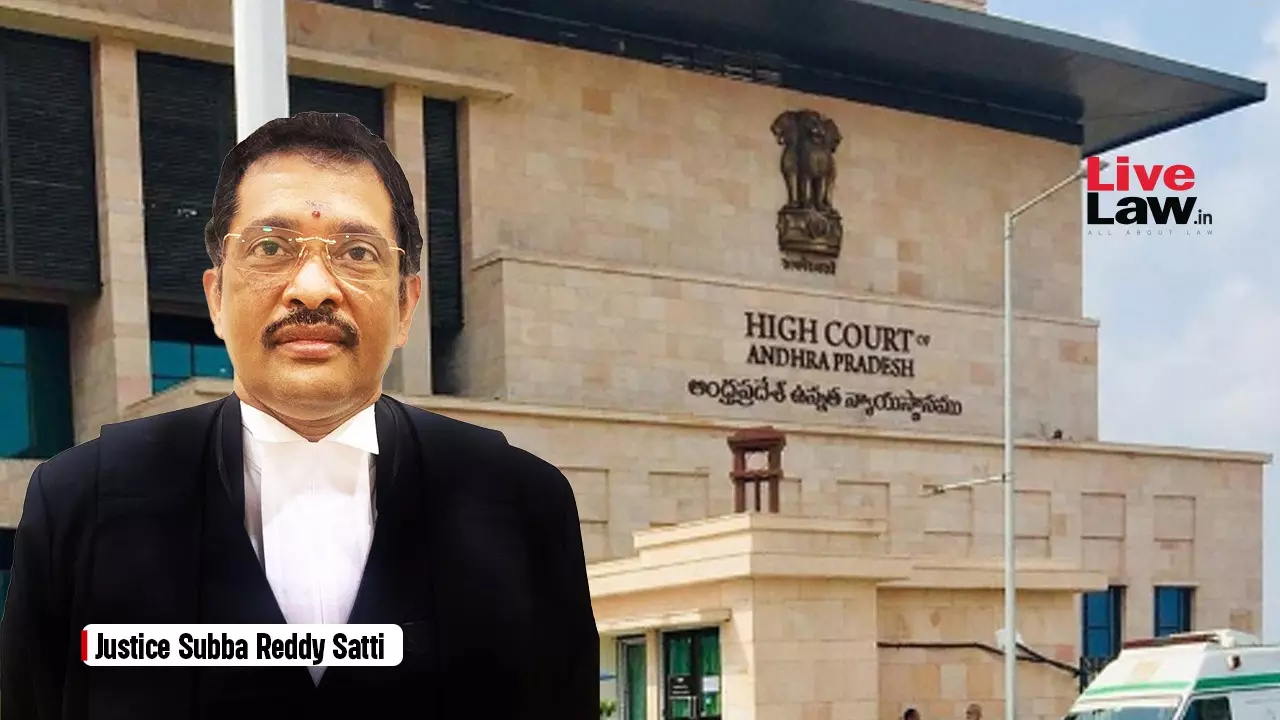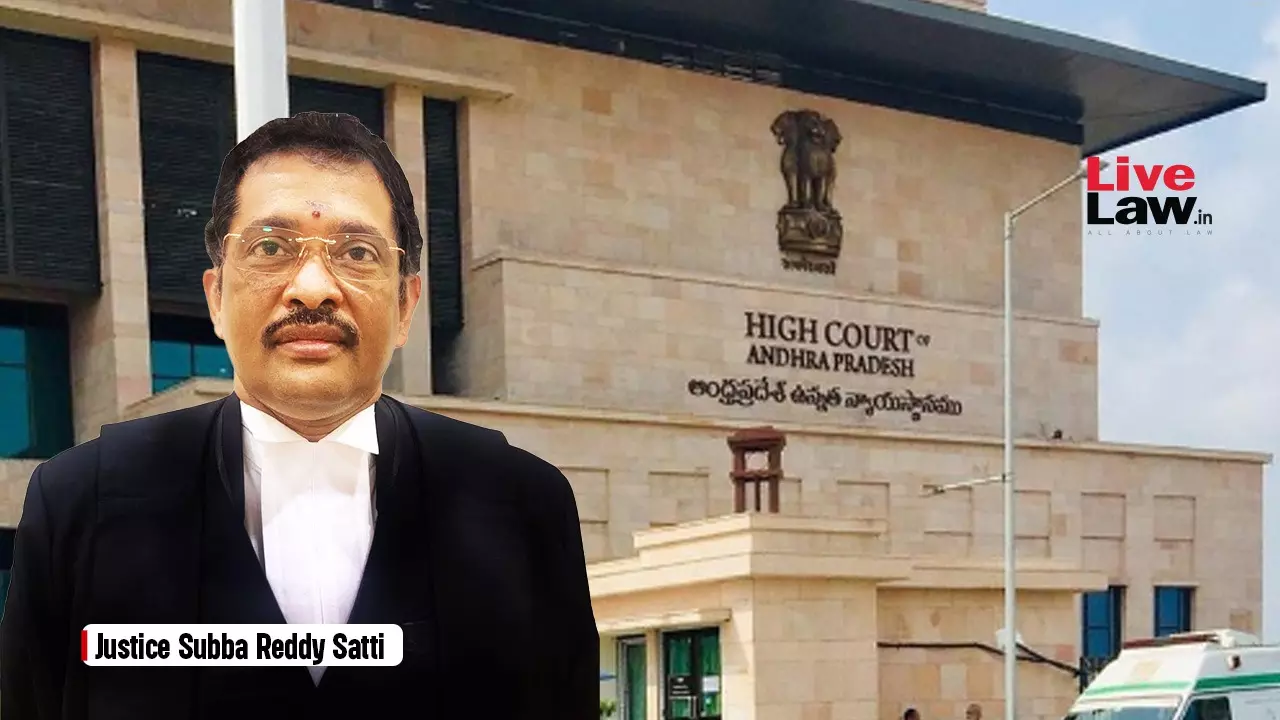AP High Court Bars Wakf Tribunal From Hearing Land Dispute Decided By Civil Court 45 Years Ago


The Andhra Pradesh High Court allowed a man’s plea against the decision of the Waqf Tribunal which had adjudicated on a suit concerning a disputed land, despite the fact that a civil court had decided the matter 45 years ago giving a finding that the disputed property is not a waqf property.
The court thus said that the Waqf Tribunal does not have the power to adjudicate any case which is the subject-matter of a suit filed before the civil court before the commencement of the Waqf Act, or any appeal/decree arising out of such a suit.
It referred to Section 7(5) of the Waqf Act which states: “The Tribunal shall not have jurisdiction to determine any matter which is the subject-matter of any suit or proceeding instituted or commenced in a civil court under sub-section (1) of section 6, before the commencement of the Act or which is the subject-matter of any appeal from the decree passed before. such commencement in any such suit or proceeding or of any application for revision or review arising out of such suit, proceeding or appeal, as the case may be“.
Section 6 (1) refers to filing of suits on disputes regarding Auqaf before the tribunal.
Reiterating that the Tribunal cannot entertain a suit seeking declaration of title over the land which was already adjudicated upon by a competent Civil Court, Justice Subba Reddy Satti held,
“When a competent Civil Court recorded a finding in an earlier suit that the property does not belong to the wakf institution, the present suit filed by the wakf institution after a lapse of 41⁄2 decades for declaration of title, in the considered opinion of this Court, is not maintainable given Section 7(5) of the Act. The present Mutavalli, the son of the earlier Mutavalli who lost the suit on an earlier occasion, woke up from deep slumber and filed the present suit after 41⁄2 decades. Once Section 7(5) of the Act comes into action, the Tribunal, at no stretch of imagination, can continue the suit on its file for further adjudication. The corollary would be that the tribunal lacks jurisdiction, and hence, a writ of prohibition can be issued in the facts of this case.”
“Thus, given the discussion supra, the writ petition filed by the petitioner stands allowed. The Wakf Tribunal, Andhra Pradesh, had no jurisdiction to adjudicate the suit O.S.No.3 of 2024, given Section 7(5) of the Wakf Act, 1995. As a sequel, pending miscellaneous petitions, if any, shall stand closed,” it added.
Background
The petitioner before the high court, Kalimela Kiran Kumar had purchased a piece of agricultural land (disputed property) in Guntupalli Village, which was later converted to non-agricultural land and was being developed for commercial purposes. Additionally, parts of this land were sold by the petitioner to a few vendees in 2017.
In 2024, Muzlum Shah Darvesh Takia Masjid (Respondent 4), represented by its Mutavalli, filed a lawsuit seeking a declaration of title and complete ownership over a part of the disputed property, claiming it as Wakf property.
In 1975 a lawsuit was filed by the Masjid for recovery of possession of the disputed property from defaulting tenants and also pleaded title to the said property. The Civil Court had dismissed the suit and passed a decree and judgment dated 30.09.1978, recording a finding that the disputed property was not wakf property and that the suit was also barred by limitation.
However, the State Wakf Tribunal, by an order dated 19.01.2024, directed the parties to maintain status quo. Aggrieved by the Tribunal entertaining the fresh suit despite the finality of the 1978 judgment by civil court, the petitioner filed the writ petition seeking writ of prohibition and challenging the jurisdiction of the Wakf Tribunal to entertain Suit of 2024.
It was the case of the petitioner that the 1975 lawsuit was against the predecessors in title of the petitioner as well as A.P. Wakf Board. The said suit was dismissed on merits by judgment and decree dated 30.09.1978 and the findings recorded in the suit became final, and hence, the 2024 suit filed by the Masjid through its Mutavalli, was hit by Section 7 of the Wakf Act.
On the contrary, the respondents submitted that the civil courts judgment and decree in the 1975 suit did not take away the jurisdiction of the tribunal in adjudicating the suit filed for the declaration of title.
It was contended that Section 7 of the Wakf Act has no application in the current case as the scope of nature of the suit of 1975 and the suit of 2024 were different, as the former did not decide on the issue of title. It was even alleged that the petitioner’s vendors were tenants and tenants can never claim ownership.
Thus, the issue which fell before the Court for its consideration was whether the Wakf tribunal has jurisdiction to entertain and proceed with the suit of 2024 filed for declaration of title, for cancellation of the sale deeds etc. and recovery of possession of the property, given the judgment and decree in the suit of 1975.
Findings:
The Court examined Section 7(5) and Section 6(1) of the Act, on the basis of which it observed that “once a civil Court has already adjudicated an issue relating to the property before the commencement of the Act 43 of 1995, the same issue cannot be agitated again.”
It relied on Valluri Siva Prasad Vs the District Registrar, Registration Stamps, Guntur and others, wherein it was held that the judgment in a suit between a private individual and Wakf Board, which became final, would operate as res judicata and hence the wakf institution cannot request to keep the property in dispute register under Section 22-A of the Registration Act. The Court also held that the wakf institution, being an instrumentality of the State, cannot overreach the judgment passed by the Civil Court.
Accordingly, the Court allowed the writ petition and held that the Wakf Tribunal, Andhra Pradesh, had no jurisdiction to adjudicate the suit 2024, given Section 7(5) of the Act.
Case Title: Kalimela Kiran Kumar v. The State Of Andhra Pradesh and Others




